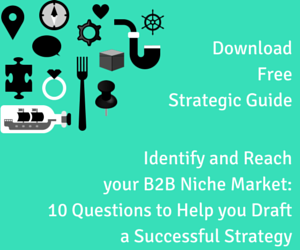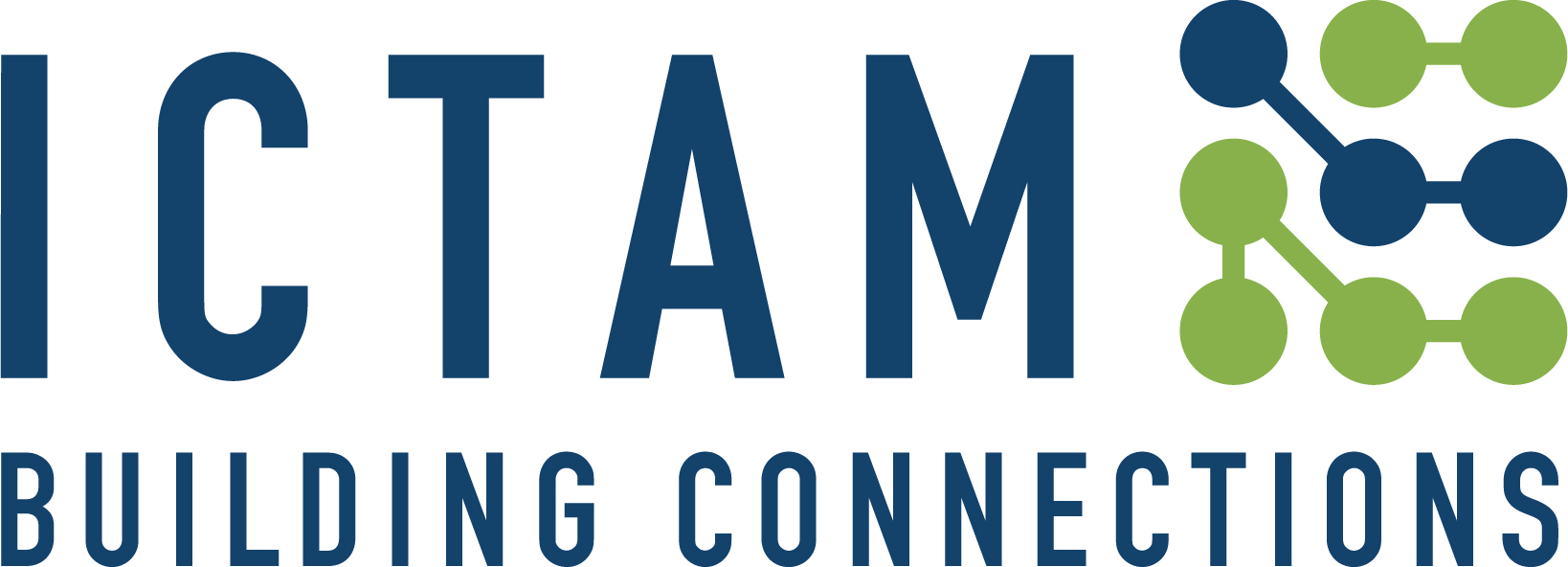Don’t fail to plan so your plan doesn’t fail. When technical companies are serious about generating new leads in their highly targeted B2B niche markets, what are the very first questions they should ask themselves?
I am sure you will agree with me if I say that all strategies are not the same. Some strategies, when you take a closer look, are instead “plans”: what to do, how to do it, who is going to do it and when. On the other hand, the real strategies incorporate the “why”: the reason we do what we do.
“Strategies” and “plans” are not the same, but many companies get mixed up. The big picture, which is the strategy, should always come before the plan.
As a B2B lead generation service, I talk every day with industrial manufacturing, technology and science companies trying to increase the sales of each and every one of their solutions. When they try to sell each and every one of the solutions they have, resources spread thin.
How much effort, resources and time can a company dedicate to grow revenue in so many directions at any given time?
If your company is considering focusing the lead generation efforts (rather than running in all directions at the same time), and creating a “strategy” (rather than a plan), I invite you to keep reading through the following questions.
After reading these questions, you can find further details in NicheMktg’s strategic guide on this topic.
1. Who are you trying to reach, and why?
Don’t try to sell to everyone. Resources are limited and selling “to everyone” is more a wish than a real objective to achieve. Identify a segment in your market that is the perfect match for your solution. Describe this audience you want to target beyond a desired industry or firmographics. Be as detailed as you can when describing your ideal client so you can gain a deep understanding of this B2B niche market you are about to connect with. “Smart segmentation” is one of the most powerful resources our B2B lead generation service has in our toolkit.
2. What is it that makes your product unique?
Any company and all its members should know what makes their products unique, or better, than all the competitors. Craft your unique selling points into a strong value proposition for the selected niche target market. Be concise and clear.
3. What is the specific need your niche target market has?
Research as much as you can. Find market reports. Look at your website analytics. Talk to customers, potential customers, vendors, specialists. Check competitors. Read many websites. Listen to your audience. Never guess.
4. What are your business goals and how you are going to reach them?
Combine:
(1) your business goals,
(2) the information you have gathered so far about your niche market (niche segment to reach + your value proposition + audience needs), and
(3) your key performance indicators (KPIs), to measure how the plans are progressing and how far/close you are from the goals.
Here you have the elements to start defining your strategy. Consider what you are successful at, what doesn’t work, and what you think it should be done. Always start with the business goals in the first column. Only then should you think of the channels and tools required to help you achieve these goals and don’t forget to include the benchmarks so you can measure and adjust.
5. How do you become trusted and respected as an authority in your B2B niche?
Technical audiences are refined and very skeptical to marketing. They “smell” marketing from far away. Any sales content or pitch you present will make them run in the opposite direction. For these audiences to consider your solution and trust your company, offer solutions and answers to their problems. Be helpful. Educate your audience. Show your expertise.
Mainly, demonstrate value. How? By developing high-quality, truly relevant pieces of content to make your target market stop, read, think and/or behave differently. High-quality, compelling information will help you connect with your B2B niche audience, and engage them. A well-defined content strategy should offer your prospects the tools they need to self-educate and make smart decisions.
6. How do you promote yourself as an expert?
You can offer the best solution ever – but if your technical niche audience doesn’t know you exist nor has the chance to know who you are, the great content you create won’t go anywhere beyond your website. Marketing 101 teaches us to “place the right content in front of the right audience”. Acute distribution is key. Promote the content you develop through all the channels you have available.
7. How would you identify and reach the individual leads in your B2B niche market?
We cannot ignore the role of your website when discussing B2B lead generation. Why does your business have a website? From now on, consider your website as a key tool in your B2B niche marketing strategy.
The ultimate goal of your website is not more and more visitors. Your company doesn’t need quantity – but excellent quality. What quality of visitors do you want to attract? What are they supposed to do once they arrive to your website?
A corporate website as an online brochure is part of the past. Your modern B2B corporate website must become your 24/7 sales rep, inviting visitors to navigate from one page to the next one. The goal is to reveal who these visitors are, “converting” anonymous visitors into known leads. You want to know who visits your website, and how interested they are in your solutions.
Thanks to today’s tools (such as marketing automation platforms), your company can identify visitors and reveal their names, email addresses, phone numbers, industries, applications and other customized pieces of information. That will allow you to identify and qualify very specific leads so your sales team can establish meaningful connections with the new prospects. The anonymous traffic to your website becomes recognizable prospects.
8. How do you convert these new leads into closed deals and revenue?
Marketing and Sales must team up and agree on a Service Level Agreement: the number and quality of leads that marketing will pass to sales, and how sales will follow up the leads provided by marketing (process, depth and number of touches).
Once this agreement is in place, it’s time for some human connection. Qualified leads who has already been in contact with your brand will be more open to receive a call from your sales team thanks to those who’ve never heard of your company before.
9. Does this methodology replace your traditional approach to lead generation?
Trade shows, face-to-face meetings, phone calls or mailings are part of the traditional sales toolkit. Online marketing brings new tools that companies must incorporate if they are willing to (1) compete in today’s sales environment, and (2) expand and reach their B2B niche markets on a global scale.
To design the right strategy for your company, evaluate how each of these tools are working for you, remember past experiences and keep in mind business goals. With that ready, “mix and match” the most effective tools from both online and offline tactics and define the particular marketing mix that will help your own company to reach your business goals.
10. How do you know if this approach is cost-effective?
“Big data”. “Data analysis”. It’s time to put these buzzwords into action so they support your company’s B2B lead generation efforts. The information is available, but someone needs to gather and analyze it through reports that answer your questions. The key performance indicators that you establish during the strategy planning stage will become the parameters to measure results and overall performance of the plans you implement.
In order to succeed in today’s sales environment and awake the interest of their B2B niche markets, companies that sell to technical professionals must find define what makes them unique and become an authority in that field.
—————————————-
As in any other area of business, when a company can get organized, define a focused strategy and dedicate the resources that a successful implementation requires, clients see the value. Industrial manufacturing, technology and scientific companies that can prove themselves authority in their B2B niche markets will reap the profits of connecting with their high quality, targeted leads.
To learn more about this topic, we invite you to download the strategic guide NicheMktg developed to help companies take the first steps into the right direction: Identify and Reach Your B2B Niche Market: 10 questions to Help you Draft a Successful Strategy






